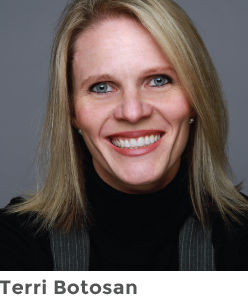The Saskatchewan government has caught insurance industry stakeholders off guard, proposing a new, separate licensing class for managing general agencies (MGAs) that do business in the province. Some say this will create an unneeded compliance burden. “I don’t think I can say [the new licensing class] is a bad thing or a good thing. It is an unnecessary thing,” says Terri Botosan, president of HUB Financial Inc. “Its goal, as is always true for regulators, is consumer protection. That’s good, but I don’t believe that licensing MGAs will provide any level of consumer protection that is not available today.”
“I don’t think I can say [the new licensing class] is a bad thing or a good thing. It is an unnecessary thing,” says Terri Botosan, president of HUB Financial Inc. “Its goal, as is always true for regulators, is consumer protection. That’s good, but I don’t believe that licensing MGAs will provide any level of consumer protection that is not available today.”
Arnold Scheerder, compliance officer with MGA R.G. Packman & Associates and compliance chair for the Canadian Association of Independent Life Brokerage Agencies (CAILBA), says the situation with Saskatchewan arose when the province began a review of its insurance act and saw an opportunity to update some of its rules and regulations.
Regulators and governments at times consult with industry before proposing new legislation, but it wasn’t until after Bill 177 went through second reading that it caught the eye of the insurance industry.
Introducing a new class of licensing was especially surprising to many given that a report published by the Canadian Council of Insurance Regulators (CCIR) in 2012 reviewed the business practices of MGAs and found that the existing licensing structure was serving all stakeholders well. However, Scheerder says Saskatchewan officials are now open to feedback and potential changes.
He says while the bill will outline a new regulatory framework, CAILBA wants to make sure Saskatchewan officials understand that currently MGAs do not supervise advisors because advisors can deal with any number of MGAs. The CCIR paper noted that legal responsibility for supervising advisors is up to insurance companies.
I don’t believe that licensing MGAs will provide any level of consumer protection that is not available today.– Terri Botosan
“I don’t believe that licensing MGAs will provide any level of consumer protection that is not available today.”
“That creates some concern from our perspective because one of the things in Bill 177 is that the MGA should have the same licence as the insurer. So if we have an insurer that has both life and P&C business that means that if the MGA doesn’t have P&C business as an MGA, we can’t represent that particular insurer because we don’t have that kind of licence,” explains Scheerder. “I don’t think we need to carry a P&C licence to carry on the life business.”
Given that the bill is now in third reading, Scheerder said it’s inevitable that there will be a new category of licensing for MGAs in Saskatchewan. After third reading, rules and regulations will be written. It’s this step that he believes other provinces will be watching closely.
In a letter to the Saskatchewan government, Nancy Allan, executive director of the Independent Financial Brokers of Canada (IFB), said her organization is generally supportive of the intent of the bill – to modernize insurance regulations in Saskatchewan. But Allan wrote that some of the proposed changes were unclear as to what specific issues the proposals were trying to achieve.
The letter outlined a number of these concerns, including what the IFB said was an apparent shift in responsibility for recommending new agents from insurers to MGAs, a seeming restriction on licensed insurance agents from acting for more than one insurer and wording that appears to contemplate insurers and MGAs entering into exclusive contracts with each other.
“IFB looks forward to understanding more fully the government’s objectives in introducing these significant changes, and to a continuing dialogue” with government officials, said Allan. “Significant disparities between provincial Insurance Acts make it difficult, confusing and costly for licensees, and should be linked to an identified need to address consumer harm or regulatory gaps.”
Rather than introducing new regulations, IFB suggested the Saskatchewan government take a page from the Canadian Life and Health Insurance Association’s (CLHIA) Screening Agents for Suitability and Reporting Unsuitable Agents and other recent updates to CLHIA guidelines that clarify the roles and relationships of insurers and MGAs.
Paul Brown, chairman and CEO of Vancouver-based IDC Worldsource Insurance Network, says he doesn’t see other provinces following suit, citing the CCIR paper. British Columbia is seen by many to be the leader in MGA regulation and it has no requirement for a separate licensing system, said Brown.
A one-province requirement flies in the face of consistent rules across the country. “If you operate in Saskatchewan you are going to have to adapt to a totally different environment, which to me doesn’t make any sense,” says Brown. “There’s all this talk about harmonization – well, this is the opposite of harmonization.”
IDC, which recently purchased First Prairie Financial Inc., a regional MGA with a presence in Saskatchewan, will have to put some sort of structure in place to meet the requirements of the bill, says Brown. “That’s something that if this bill does come into force, that we are going to have to react to. It would either mean deciding not to do business there or setting up the proper structure to comply – that’s something we haven’t gone into detail about yet, but we’ll have to have a look at that.”
Smaller MGAs at risk
Brown also said the situation could arise that any new supervisory and licensing requirements could put some of the smaller MGAs out of business – at least in Saskatchewan. He suggests that an MGA representing one or two life insurance companies may be hamstrung by the new proposed rules.
“You could be shutting down viable businesses,” he says. “Clearly the spirit of the regulation is that advisors and consumers need to have choice and by restricting the number of MGAs through legislation, you are also having an impact on the business side and on people’s livelihoods.”
Botosan says it’s her understanding that it might take up to two years before the government gets final wording on its different proposals.
HUB will continue to do business with advisors it already deals with in Saskatchewan, but it may be a different case for new advisors in that province.
“We have a program that brings brand new people into the industry and depending on the rules that come out with licensing and recommendations for those particular advisors, we may just stop doing that. We haven’t decided yet.”
If/when the regulations do come into play, Botosan says that HUB, which provides training to new financial advisors, may decide to skip that training in Saskatchewan, leaving that to other MGAs in the province.



